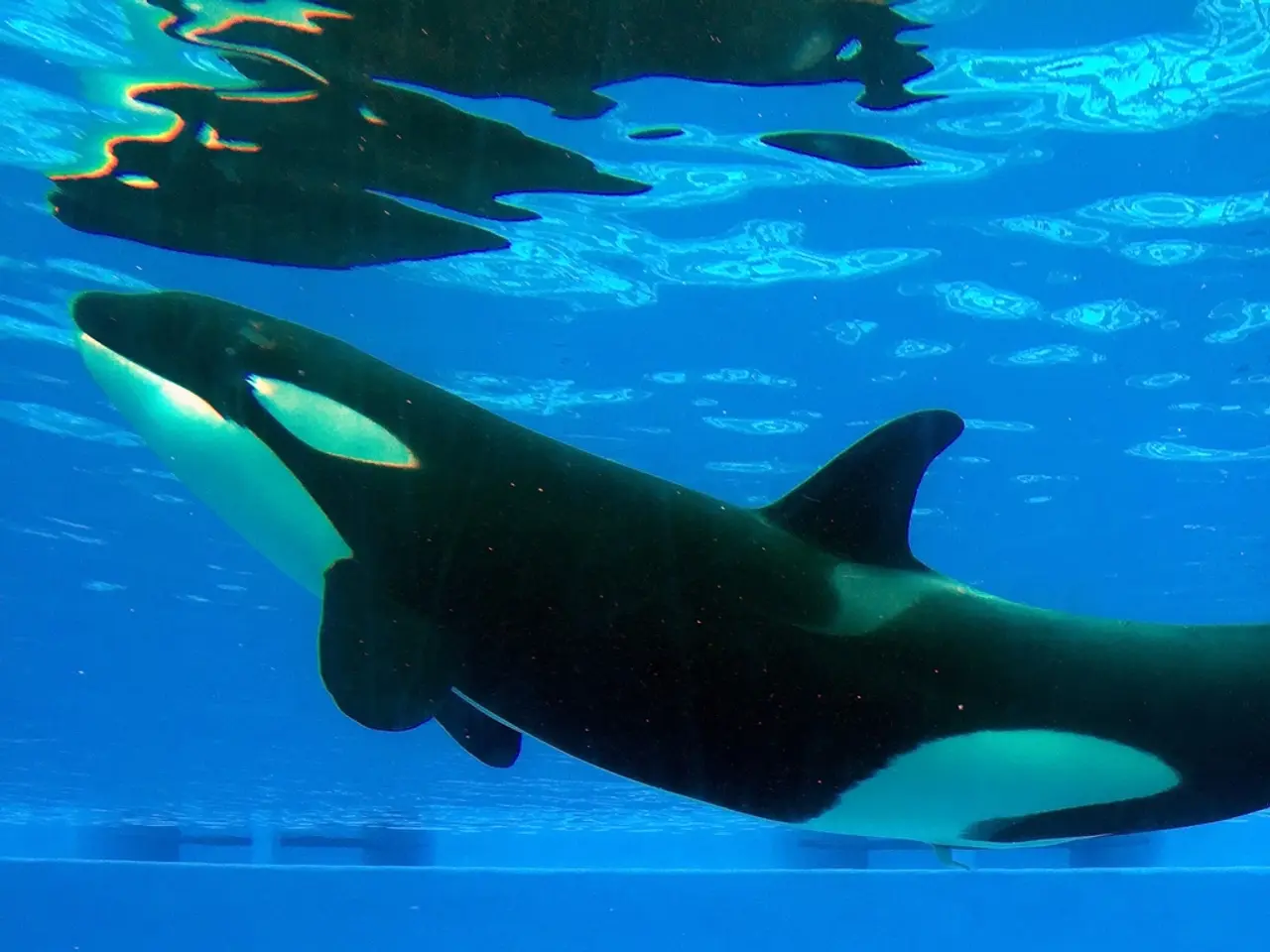Ancient whale species, bearing a deceivingly adorable appearance yet possessing a formidable nature, christened after the local discoverer who uncovered its skull on the shore.
In a groundbreaking discovery, a team of palaeontologists has pieced together the remains of a previously unknown species of ancient whale, named Janjucetus dullardi, from a fossil found on Victoria's Surf Coast in 2019. This discovery, described in the peer-reviewed Zoological Journal of the Linnean Society, sheds new light on the evolution of whales and their adaptation to life in the sea.
The fossil was found in the Jan Juc Formation, a geological feature dating back to the Oligocene epoch between 23 and 30 million years ago. This makes Janjucetus dullardi the third mammalodontid species identified in Victoria, following discoveries in 2006 and 1939.
The species, essentially a little whale with big eyes and a mouth full of sharp, slicing teeth, is a fast, sharp-toothed predator about the size of a dolphin. Researcher Ruairidh Duncan described it as deceptively cute but fearsome.
Erich Fitzgerald, a palaeontologist who co-authored the study, said the discovery opens a window into how ancient whales grew and changed, and how evolution shaped their bodies as they adapted to life in the sea. He also stated that the region was a cradle for some of the most unusual whales in history.
The discovery of Janjucetus dullardi comes two years after scientists announced they discovered an ancient whale in Peru that could be the heaviest animal ever to exist. The region of Victoria, Australia, is rewriting the story of how whales came to rule the oceans.
Museums Victoria released a video showing Duncan discussing the discovery and how researchers identified the species. The fossil discovery site is a renowned site for the study of early whale evolution.
Janjucetus dullardi is only the fourth mammalodontid species discovered worldwide, further emphasizing the area's significance for understanding whale evolutionary history. Other prehistoric whale fossils of similar age and type have been recovered from the Victorian coast, with ongoing research and excavation expected to reveal more such species in the future.
The species was named after Ross Dullard, who found the skull in 2019. The discovery of Janjucetus dullardi underscores the richness of Victoria as a hotspot for early whale evolution and the exciting possibilities for future discoveries in this field.
Read also:
- Parliamentary sessions this week in the Federal Diet (Bundestag) of Germany
- Discovering a Potential Method to Decrease Your 'Bioenergetic Age' Could Potentially Prevent Alzheimer's, According to Research
- A tourist from Kamchatka has planted a flag on Mount Elbrus
- Identifying Overabundance of Negativity in Your Life: Recognizing and Dealing with Pessimistic Individuals








